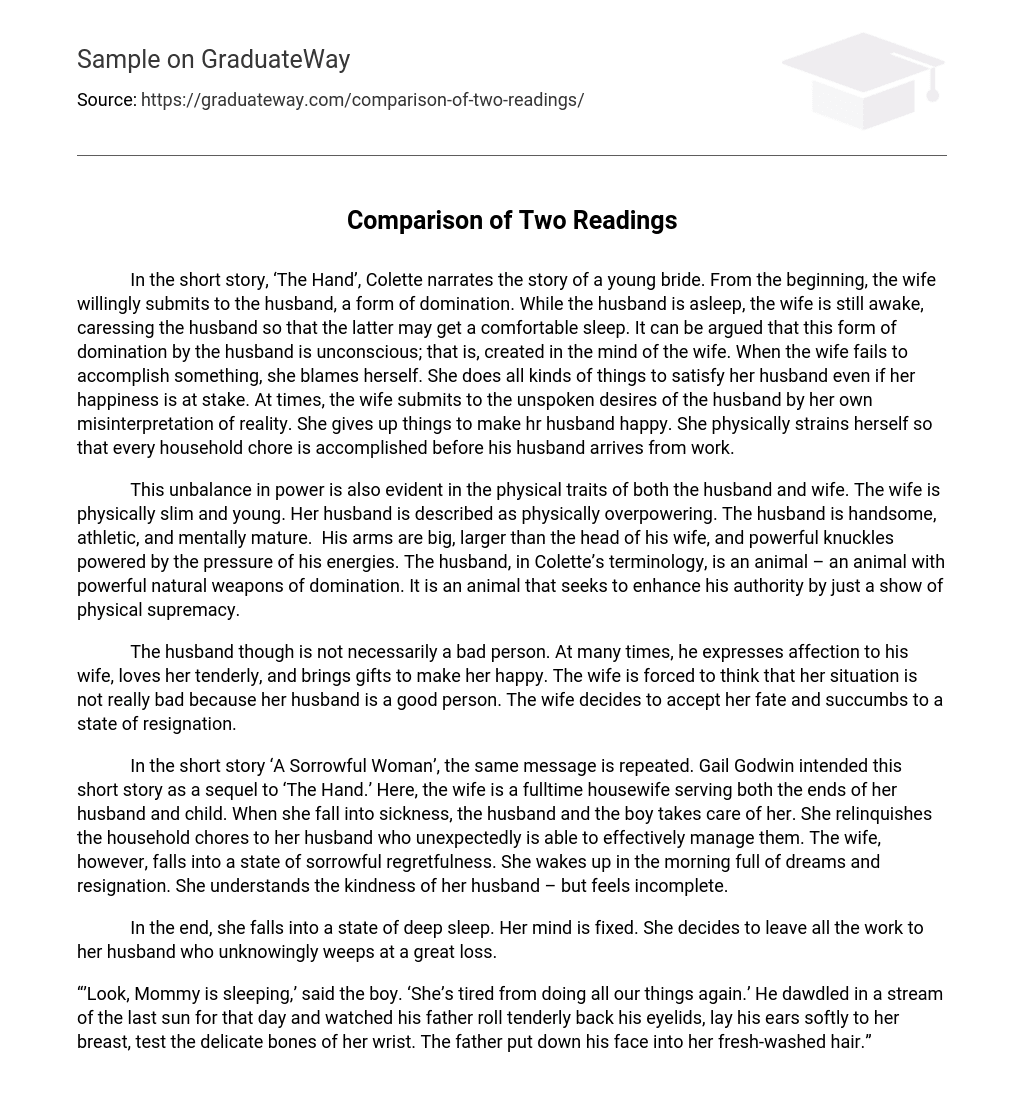In the short story, ‘The Hand’, Colette narrates the story of a young bride. From the beginning, the wife willingly submits to the husband, a form of domination. While the husband is asleep, the wife is still awake, caressing the husband so that the latter may get a comfortable sleep. It can be argued that this form of domination by the husband is unconscious; that is, created in the mind of the wife. When the wife fails to accomplish something, she blames herself. She does all kinds of things to satisfy her husband even if her happiness is at stake. At times, the wife submits to the unspoken desires of the husband by her own misinterpretation of reality. She gives up things to make hr husband happy. She physically strains herself so that every household chore is accomplished before his husband arrives from work.
This unbalance in power is also evident in the physical traits of both the husband and wife. The wife is physically slim and young. Her husband is described as physically overpowering. The husband is handsome, athletic, and mentally mature. His arms are big, larger than the head of his wife, and powerful knuckles powered by the pressure of his energies. The husband, in Colette’s terminology, is an animal – an animal with powerful natural weapons of domination. It is an animal that seeks to enhance his authority by just a show of physical supremacy.
The husband though is not necessarily a bad person. At many times, he expresses affection to his wife, loves her tenderly, and brings gifts to make her happy. The wife is forced to think that her situation is not really bad because her husband is a good person. The wife decides to accept her fate and succumbs to a state of resignation.
In the short story ‘A Sorrowful Woman’, the same message is repeated. Gail Godwin intended this short story as a sequel to ‘The Hand.’ Here, the wife is a fulltime housewife serving both the ends of her husband and child. When she fall into sickness, the husband and the boy takes care of her. She relinquishes the household chores to her husband who unexpectedly is able to effectively manage them. The wife, however, falls into a state of sorrowful regretfulness. She wakes up in the morning full of dreams and resignation. She understands the kindness of her husband – but feels incomplete.
In the end, she falls into a state of deep sleep. Her mind is fixed. She decides to leave all the work to her husband who unknowingly weeps at a great loss.
“’Look, Mommy is sleeping,’ said the boy. ‘She’s tired from doing all our things again.’ He dawdled in a stream of the last sun for that day and watched his father roll tenderly back his eyelids, lay his ears softly to her breast, test the delicate bones of her wrist. The father put down his face into her fresh-washed hair.”





